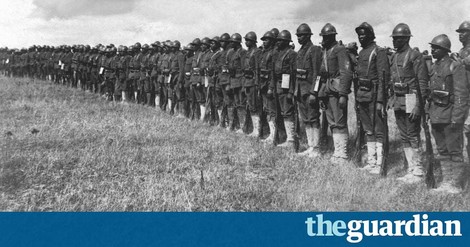Your podcast discovery platform
Curious minds select the most fascinating podcasts from around the world. Discover hand-piqd audio recommendations on your favorite topics.

piqer for: piqd Boom and bust Climate and Environment Global finds Globalization and politics Health and Sanity Technology and society Doing Good Deep Dives
Malia Politzer is the executive editor of piqd.com, and an award-winning long-form journalist based out of Spain. She specializes in reporting on migration, international development, human rights issues and investigative reporting.
Originally from California, she's lived in China, Spain, Mexico and India, and reported from various countries in Africa, Europe and the Middle East. Her primary beats relate to immigration, economics and international development. She has published articles in Huffington Post Highline, The Economist, The Wall Street Journal, Vogue India, Mint, Far Eastern Economic Review, Foreign Policy, Reason Magazine, and the Phoenix New Times. She is also a regular contributor to Devex.
Her Huffington Post Highline series, "The 21st Century Gold Rush" won awards from the National Association of Magazine Editors, Overseas Press Club, and American Society of Newspaper Editors. She's also won multiple awards for feature writing in India and the United States.
Her reporting has been supported by the Pulitzer Center on Crisis Reporting, The Institute For Current World Affairs, and the Global Migration Grant.
Degrees include a BA from Hampshire College and MS from Columbia University Graduate School of Journalism, where was a Stabile Fellow at the Center for Investigative Journalism.
How Colonial Violence Came Home: The Ugly Truth Of The First World War
Next November will mark the 100th anniversary of the end of World War I, known as the bloodiest war in European history. Perhaps less well known is the considerable impact that the first world war had on many former colonies, or its role in accelerating conflicts and political struggles across Asia and Africa.
In total, more than four million non-whites — most of them recruited into war by colonial powers — fought in the war; but even while they were recruited to fight, their growing presence on the continent also fuelled increasing racism, xenophobia, and exclusionary policies.
This article delves into the history of the “other” fighters in World War I, and their treatment by colonial powers — both at home and in Europe — and the construction of “white superiority” upon which colonial powers relied to justify the racist and genocidal politics that accompanied Western expansion.
Understanding this, the author argues, is critical to explaining the context of white nationalist movements today, “one that shows how whiteness became in the late 19th century the assurance of individual identity and dignity, as well as the basis of military and diplomatic alliances.”
“Such a history would show that the global racial order in the century preceding 1914 was one in which it was entirely natural for “uncivilised” peoples to be exterminated, terrorised, imprisoned, ostracised or radically re-engineered. Moreover, this entrenched system was not something incidental to the first world war, with no connections to the vicious way it was fought or to the brutalisation that made possible the horrors of the Holocaust. Rather, the extreme, lawless and often gratuitous violence of modern imperialism eventually boomeranged on its originators.”
Taken in this context, the movements we are seeing today — particularly the fear of refugees in Europe, and the swing to the right by many Western countries, shows a certain amount of continuity.
Stay up to date – with a newsletter from your channel on Globalization and politics.
